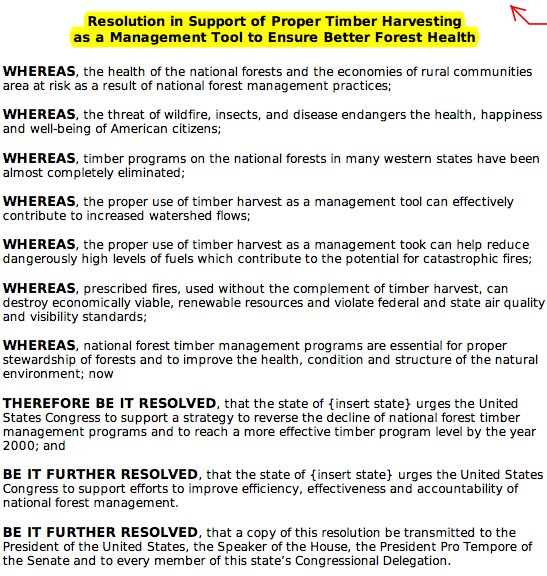No conspiracy theories here folks, but thought I’d point out some very close similarities between the ideas, findings, provisions, and debate on the NJ “Forest Harvest” bill and the model bill on forestry written by the American Legislative Exchange Council (ALEC).
In a touch of Orwell, the original Senate “Forest Harvest” bill has since been significantly revised, substituted, and renamed as the “Forest Health” bill, see S1085 SCS.
(for those unfamiliar with ALEC, hit this “ALEC Exposed” and/or watch this superb Bill Moyers documentary “United States of ALEC”).
I was initially curious, because the bill is co-sponsored by Senator Oroho.
Oroho is a conservative Republican who serves as ALEC’s NJ Co-Chair. He is ALEC’s point man and the bill’s co-sponsor.
As you can see from the bills he sponsored, Oroho is not what you’d call an environmental champion with a deep interest in “forest health”.
But he does represent rural Sussex County, home of thousand of acres of prime hardwood forests on State lands, so I’m sure Oroho views those forests as economic assets, not environmental treasures.
In addition to similar ideas and language, and the role of Oroho, there are other ALEC ties to the forestry legislation.
The NJ forestry bill is supported by corporate interests and right wing groups that have no legitimate interests in “forest health”. These groups include, gun rights advocates and right wing groups who engage in smear tactics, accusing NJ groups of being “eco-terrorists” (See smears by NJ Outdoor Alliance).
Well, here is the ALEC model forestry bill –
Hit that link and note below the eeirely similar ideas and language regarding the provisions of the bill and the terms of the debate on that bill.
These include use of cover as promoting “forest health”, support of a vague concept of “stewardship”; specification of the reasons forests allegedly are “at risk”; the claim that there has been an “elimination of timber programs”; use of “timbering as a management tool”; and support for “prescribed burns” – read the NJ Farm Bureau testimony on the bill to confirm all that!

